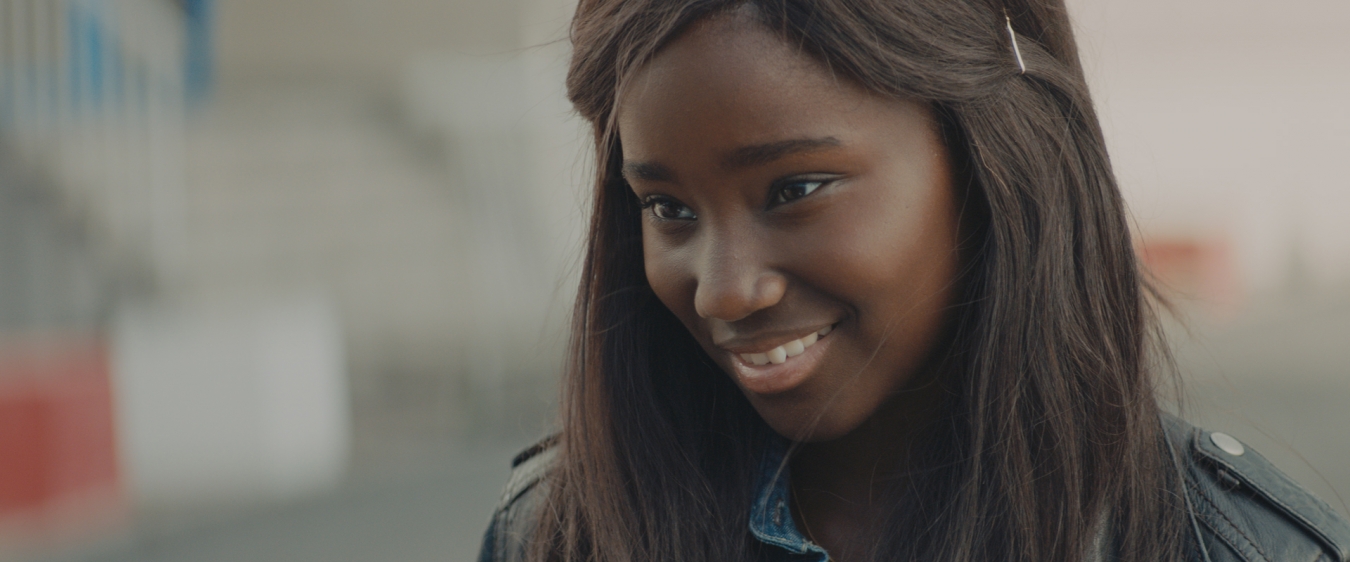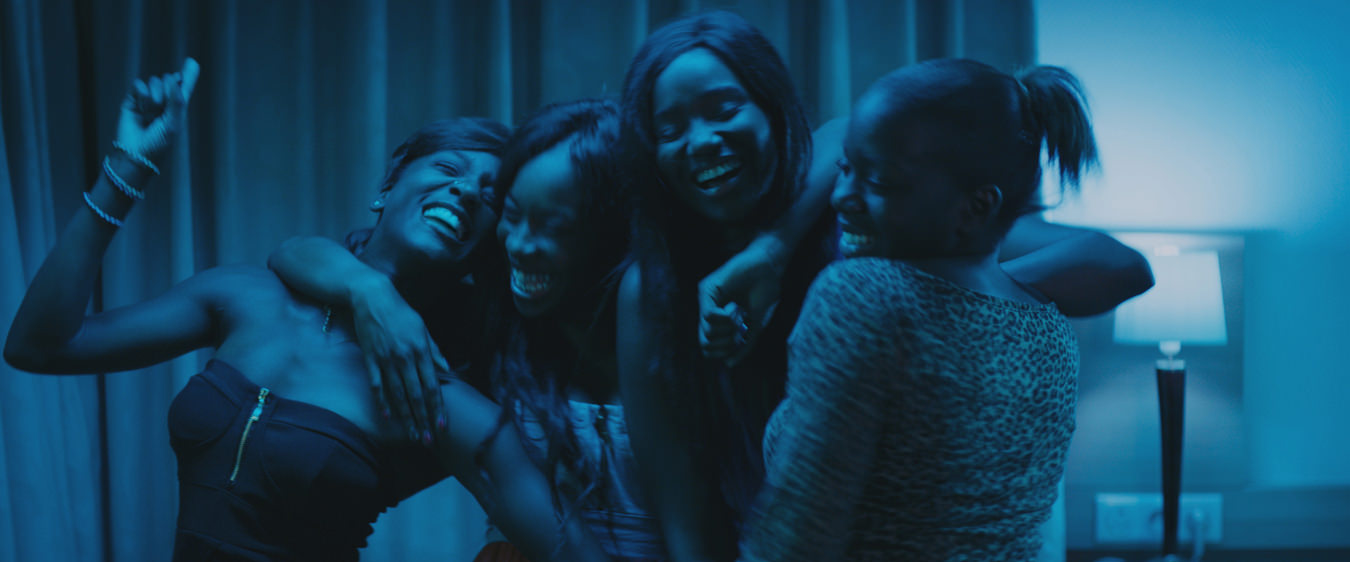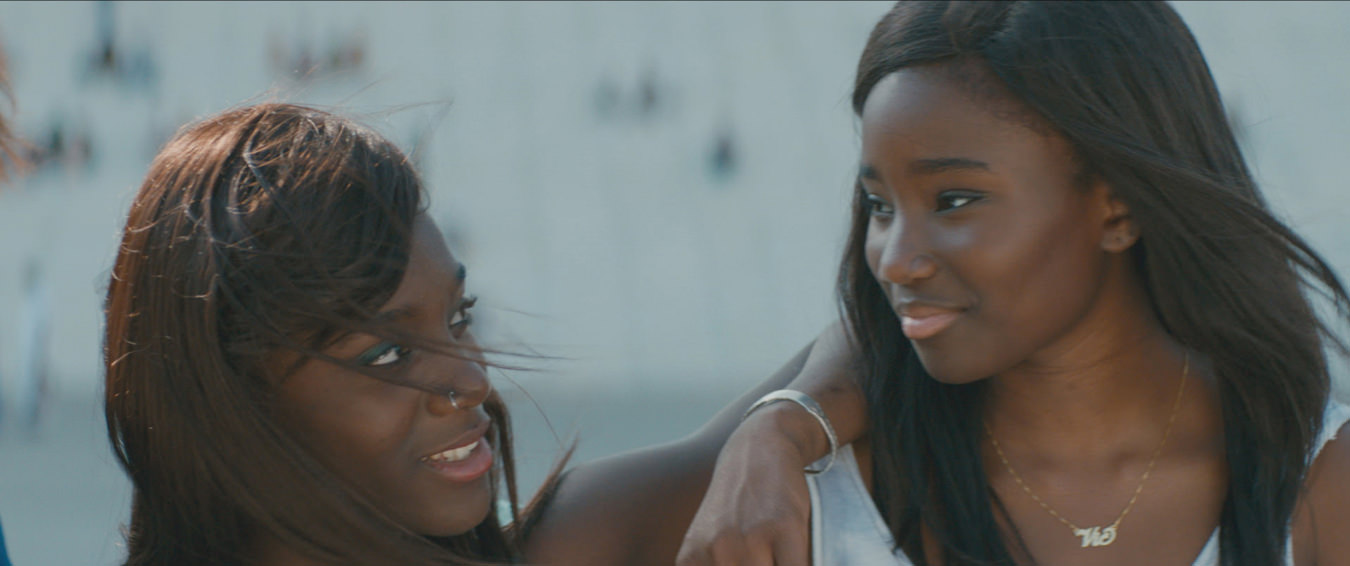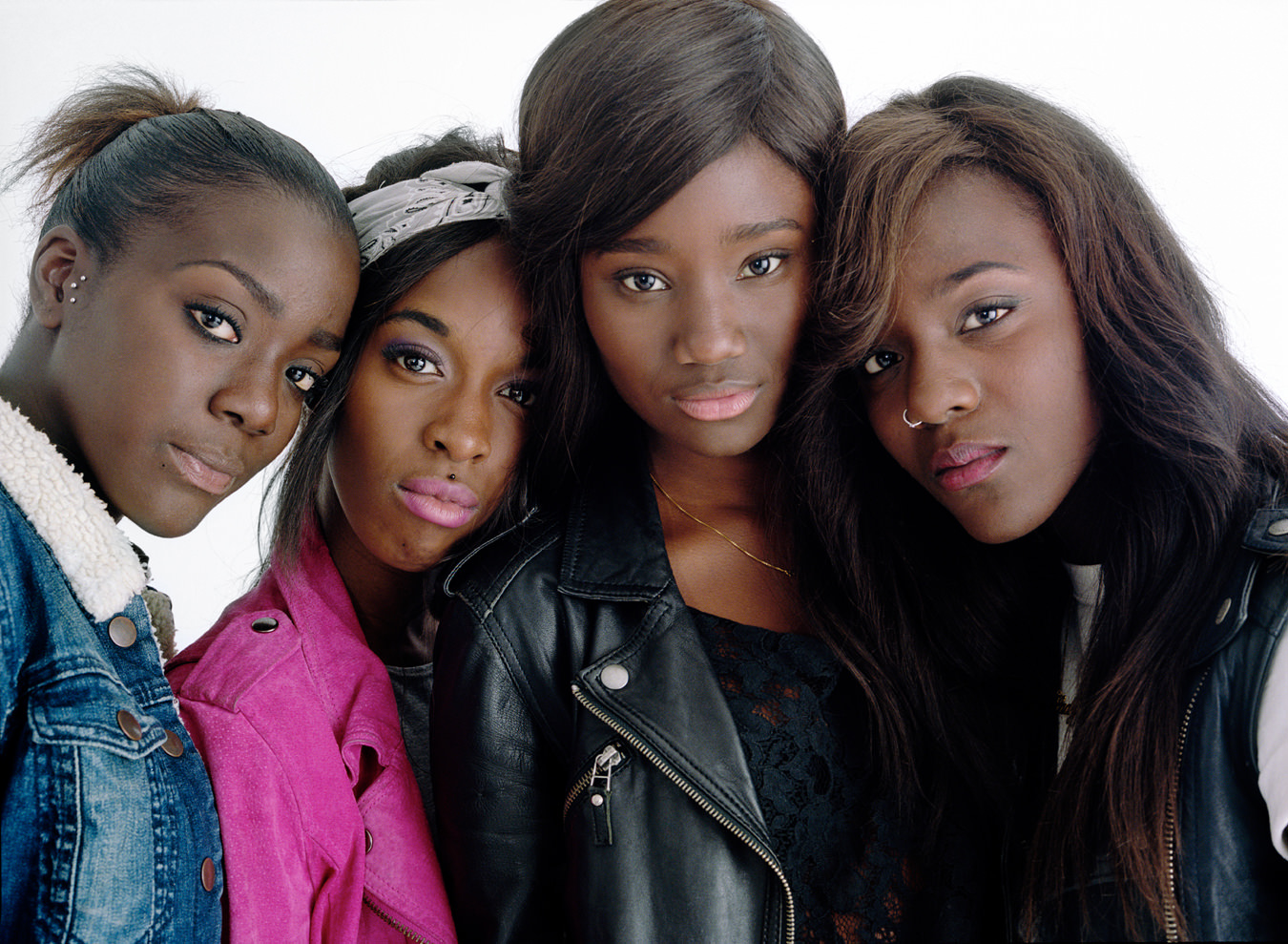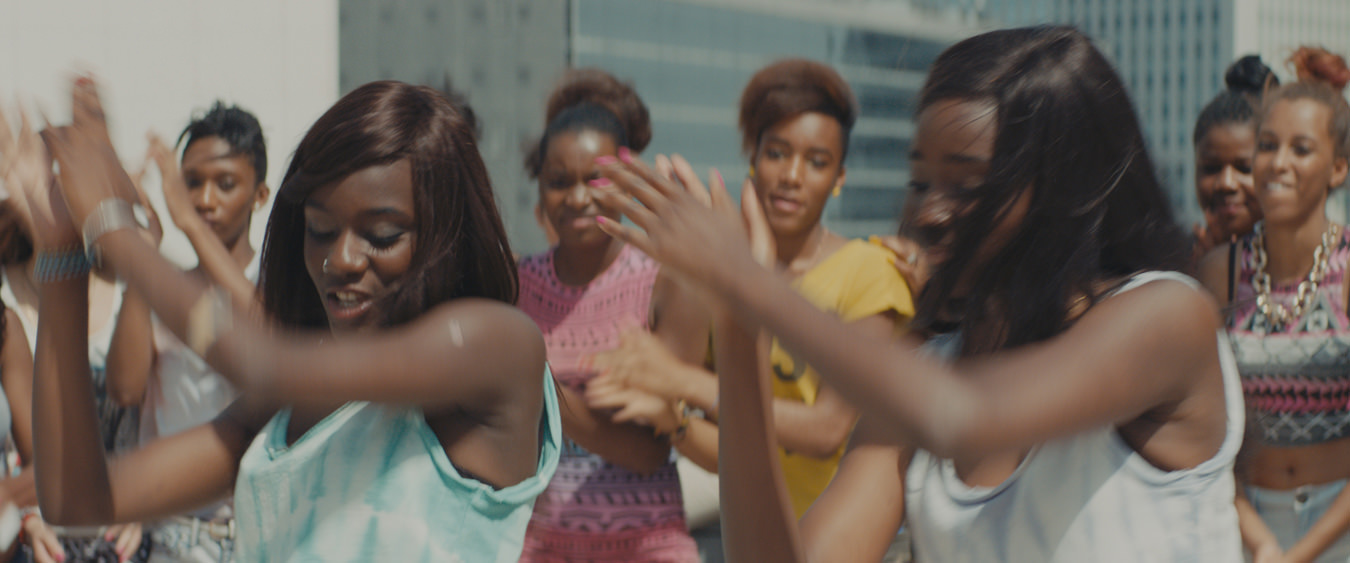We are conditioned by culture in large and small ways, from tacitly agreed upon social protocols to idiosyncratic familial customs. Each of us negotiates belonging through a delicate balance of upholding certain traditions, while at the same time refusing others. There’s just no escaping the influence of where we are from.
At the centre of writer/director Céline Sciamma’s 2014 film Girlhood (Bande de Filles) is 16-year-old Marieme. Growing up in a banlieue outside of Paris in a home where her mother is largely absent, working all day and all night to earn a living for her family, and where her older brother fills the void of discipline with physical and emotional abuse, Marieme glimpses another kind of life when she is unexpectedly befriended by a group of wild, popular girls. Welcomed into the gang, Marieme tests her limits: she commits petty acts of theft, stuffs a jackknife deep in the pocket of her jeans, plays at the hero and sets out to enact revenge. But leaving behind her old life for these new terms of engagement is not so simple. Trading school for illicit work and blood ties for the bonds of friendship, Marieme is still subject to the codes and customs of the banlieues. Negotiating the passage from girl to woman, Marieme learns, is so much more complicated than exchanging one set of circumstances for another; it’s often a fierce struggle.
Alice Rohrwacher’s The Wonders (Le Meraviglie) (2014) also tells the story of a girl, Gelsomina, finding her way from the confines of her family out onto the unpredictable stage of the world. Living on a small rundown farm in rural Italy, Gelsomina is the unlikely head of her household, her eccentric father and demure mother deferring to her clear-headed competence in child-minding and chore-keeping. The economy of the family is structured around beekeeping, which is suddenly subject to fancy health and safety codes rolled out by the European government. Struggling to address these new regulations—because the labour force of their enterprise are their young children and money is already in short supply—Gelsomina’s parents find themselves adopting a troubled young boy. Their hope is to exploit his labour while cashing in on the state payments for tending to his rehabilitation. The close bond between Gelsomina and her father is strained by his willingness to imagine this young boy as the son he never had. At the same time, Gelsomina begins to long for the world outside of her family. In a small act of defiance, she enlists her family to participate in a kitsch reality television show, where local farms compete for the designation of “most traditional”. In the collision of those two worlds—contemporary social phenomena and conventional ways of living, the expansive possibilities of society and the closed strictures of family—Gelsomina recognizes the thrust of her transformation, from father’s daughter to finding footing as a woman in becoming.
Cecile Emeke’s short comedy Ackee & Saltfish (2014) follows friends Olivia and Rachel as they scour the London streets for some authentic ackee and saltfish, a classic Caribbean dish. What they find instead is “Bob Marley salted-cod and vegetables”—in other words, Jamaican food made by English people. As they continue walking, they discover that all the independent Caribbean food shops have been replaced by hipster interpretations of regional cuisine, fancy coffee shops, or empty storefronts where it is implied that longstanding tenants can no longer afford rent in the gentrifying neighbourhood of Dalston. Rather than embracing the city’s changing landscape, Olivia digs in her heels and refuses to eat any but traditional ackee and saltfish, which means eating nothing at all. Against Rachel’s calls to relax—it’s just food, after all—Olivia resists, insisting that their culinary experience is part of larger forces of cultural appropriation and exploitation, the face of neocolonialism.
There is no right way to approach the customs of culture or family, but these films make clear that this inheritance is a process of negotiation. Where Marieme and Gelsomina refuse their identities as daughters and girls of a dutiful sort, the ladies of Ackee & Saltfish are invested in preserving their cultural traditions. Through our embodiment of history, we sometimes carry forward the stories that have made us; other times we write new stories that become capable of being passed on, traditions in the making.

